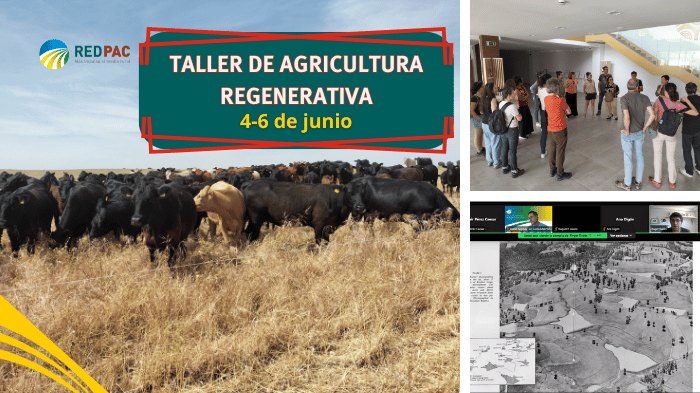
18 de June de 2024
The training was attended by 31 participants, who enjoyed two days of virtual classes and a visit to a regenerative agriculture farm in Rueda (Valladolid).
- The 'Training Workshop on Regenerative Agriculture' took place between June 4 and 6.
- 31 attendees received training from the Regenerative Agriculture Association
Soil health is inextricably linked to the sustainability of the entire food system. The nutritional quality of plants and animals, and the future climate of the planet—all are directly connected to soils.
Regenerative agriculture fosters soil fertility and biodiversity by stimulating the regeneration and fertility of agricultural soils, thus promoting soils with high amounts of organic matter that produce food using natural resources.
Given the importance of all this, and in pursuit of the economic and environmental objectives of the CAP Strategic Plan 2023-2027 , the CAP Network held a training workshop on regenerative agriculture on June 4 and 5. The workshop consisted of a pilot course—not open to the general public—divided into several sections delivered virtually by the Regenerative Agriculture Association .
Course and contents
The training was attended by 31 participants , who enjoyed a series of classes that broadened their scope to include various topics of interest, focusing on the following: biodiversity, regenerative agriculture, nutritional content of foods, the current situation in Spain, regenerative management, the impact of targeted grazing, its relationship with climate, key rules, crop production, and practical experience.
Thus, after the two-day virtual session, the organization transported some attendees to an agricultural farm on June 6.
On this final day, conservation and regenerative farmer Félix del Villar showcased his farm in Rueda, Valladolid, and explained how he is currently transitioning from conventional conservation agriculture to regenerative agriculture.
Afterwards, the students visited the 'Oro de Castilla' winery and enjoyed a tasting meal with grass-fed beef and other products made from regenerative Iberian raw materials, all led by Ana Digón , president of the Regenerative Agriculture Association.
The courses were taught by Ana Digón, Félix del Villar, and Dr. Xavier Domene , soil scientist and researcher at CREAF-Universitat Autònoma de Barcelona; Javier García Lacal , a technical advisor specializing in PRV and MH, who also works as an expert in food nutritional content; José Luis García de Castro , veterinarian, livestock farmer, advisor, trainer, and manager at Poultree; Dr. Nerea Mandalúñiz , veterinarian and researcher at Neiker; and Roger Rabés , technical advisor, trainer, and livestock farmer.
Regenerative agriculture is the future
“Regenerative agriculture combines the best of ancestral knowledge,” Ana Digón stated in an interview with the PAC Network, “and combines cutting-edge scientific knowledge of biology.”
The goal is, therefore, to "link agri-food production to the farm's own resources" to produce food and regenerate natural resources. Thus, profitability is a must, as these are systems that not only protect the environment but also aim to establish themselves over the long term, providing a compelling economic advantage that produces an entire system that benefits both nature and people.
The PAC Network is planning training programs on regenerative agriculture, with open enrollment in the future. The program for this pilot course is available at the following link .











